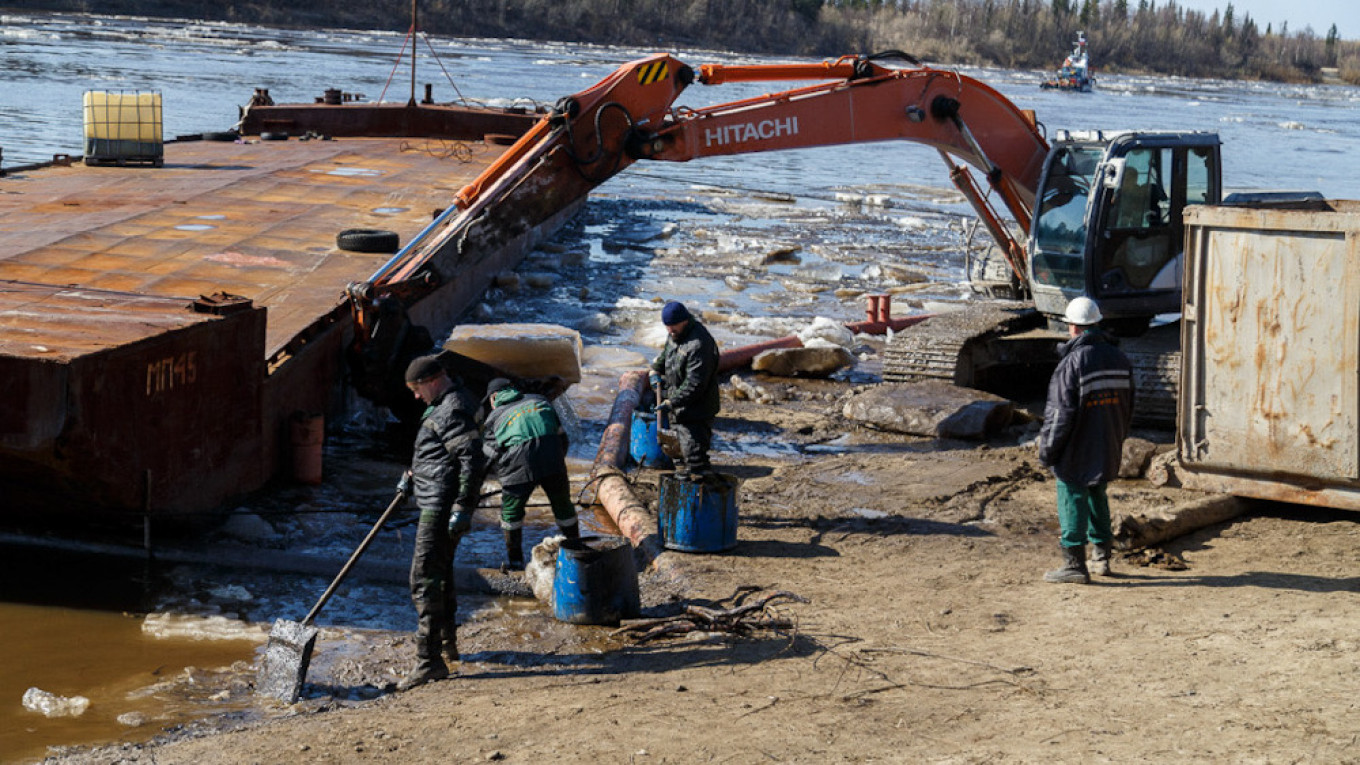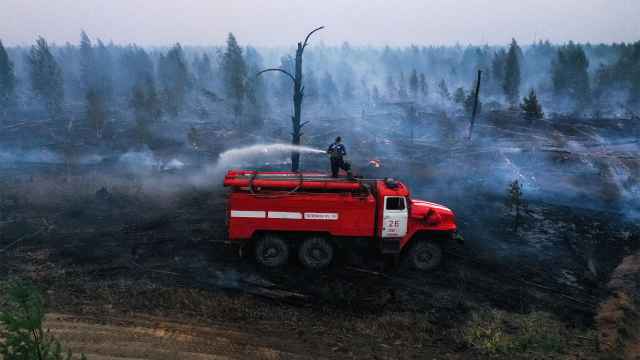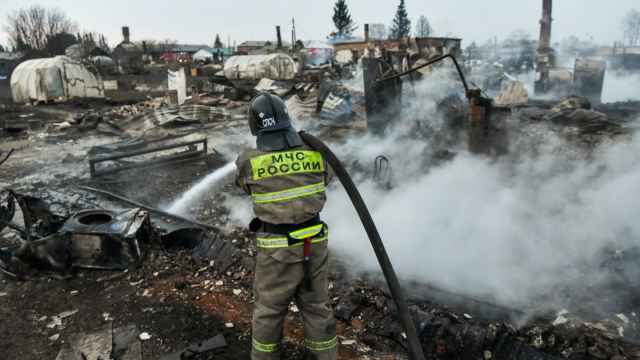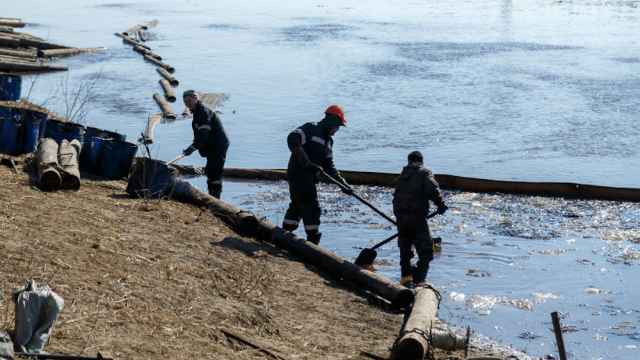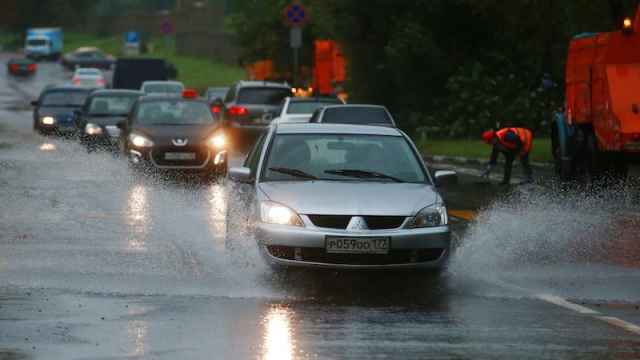A recent oil spill in northern Russia may be 4-5 times larger than originally estimated, authorities said as environmentalists warned that the pollution could reach the Arctic Ocean.
Authorities in the republic of Komi declared an emergency last week after the oil spill at the Oshskoye field, operated by a subsidiary of oil giant Lukoil, in the neighboring Nenets autonomous district spread into local soil and waterways.
While Lukoil officials initially said 20 tons of oil product had spilled, the real scale is closer to 90-100 tons — nine of which entered the Kolva River, officials in the town of Usinsk 1,500 kilometers northeast of Moscow said Saturday.
Usinsk authorities added that around 230 people were working to contain the spill.
While the land spill has since been contained, containing the spread of the oil slick on water will take many days, Komi environment minister Alexei Kuznetsov told the state-run TASS news agency Monday.
The polluted water has been swiftly carried downstream from the Kolva into the connecting Pechora and Usa rivers and is now advancing toward the Barents Sea, environmentalists say.
“The oil slick is definitely moving toward the Barents Sea,” Ivan Blokov, head of research and expertise at Greenpeace Russia, told The Moscow Times.
Blokov said that while it’s too early to say how much oil has spilled and how much will reach the Arctic Ocean, the spill will “bring significant harm to local birds and fish.”
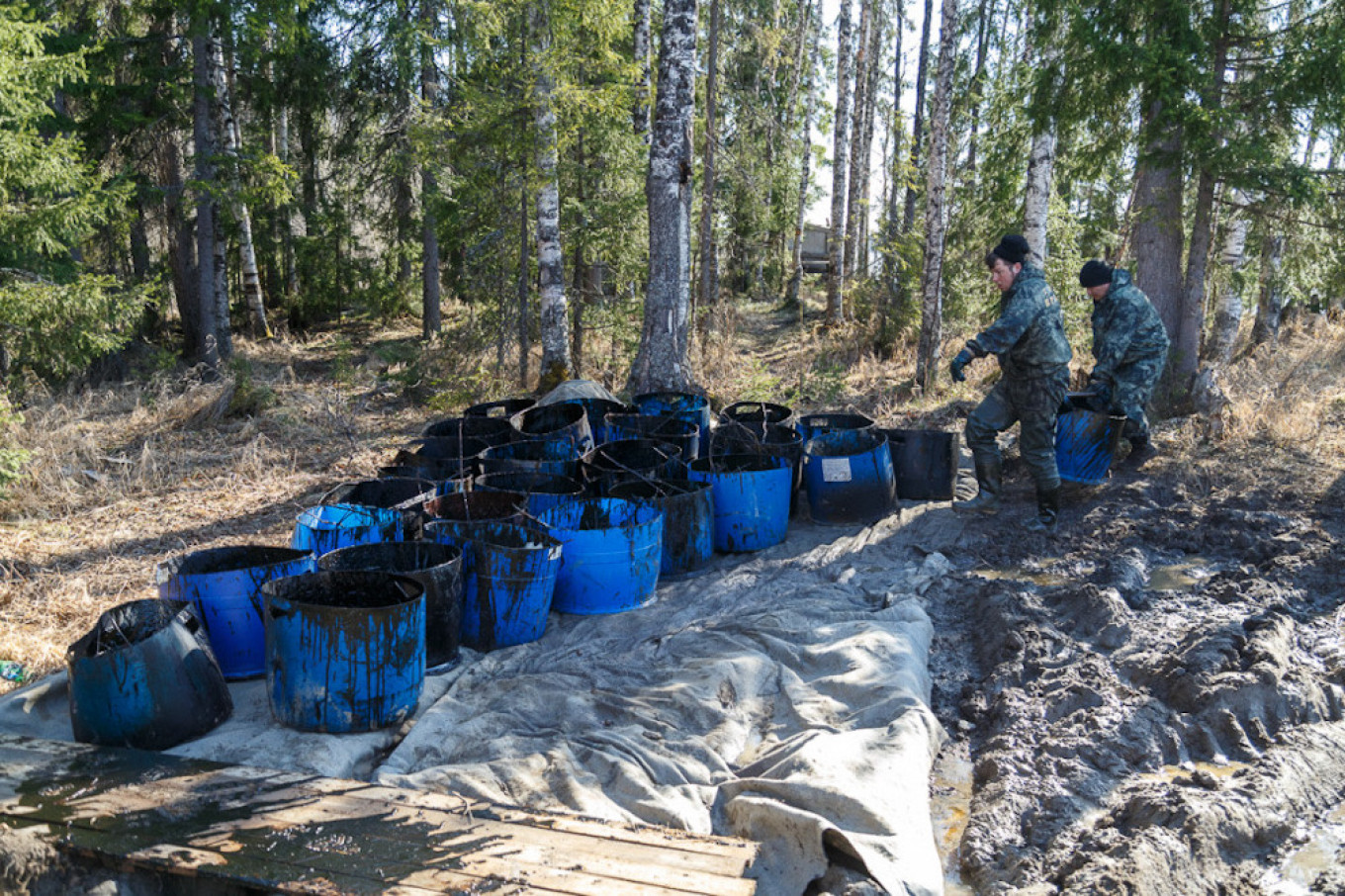
Some 10,000 oil leaks and spills take place in Russia every year due to aging infrastructure and other factors, Blokov said, adding that the vast majority of these leaks go unreported due to a lack of proper environmental monitoring.
“We have to prohibit the use of most oil pipes aged 20 years and older to drastically cut the number of these spills,” Blokov said.
Accidents at Lukoil-operated facilities are taking place with increasing frequency, said Svetlana Radionova, head of state environmental protection watchdog Rosprirodnadzor. In an Instagram post, Radionova said Rosprirodnadzor might bring Lukoil to court, claiming that a lack of transparency and proper monitoring at Lukoil led to the accident.
The Nornickel mining giant was ordered to pay a record 145 billion rubles ($1.96 billion) in fines to local and federal authorities after a major oil spill at one of its facilities last summer that was dubbed the worst-ever Arctic environmental disaster.
A Message from The Moscow Times:
Dear readers,
We are facing unprecedented challenges. Russia's Prosecutor General's Office has designated The Moscow Times as an "undesirable" organization, criminalizing our work and putting our staff at risk of prosecution. This follows our earlier unjust labeling as a "foreign agent."
These actions are direct attempts to silence independent journalism in Russia. The authorities claim our work "discredits the decisions of the Russian leadership." We see things differently: we strive to provide accurate, unbiased reporting on Russia.
We, the journalists of The Moscow Times, refuse to be silenced. But to continue our work, we need your help.
Your support, no matter how small, makes a world of difference. If you can, please support us monthly starting from just $2. It's quick to set up, and every contribution makes a significant impact.
By supporting The Moscow Times, you're defending open, independent journalism in the face of repression. Thank you for standing with us.
Remind me later.


